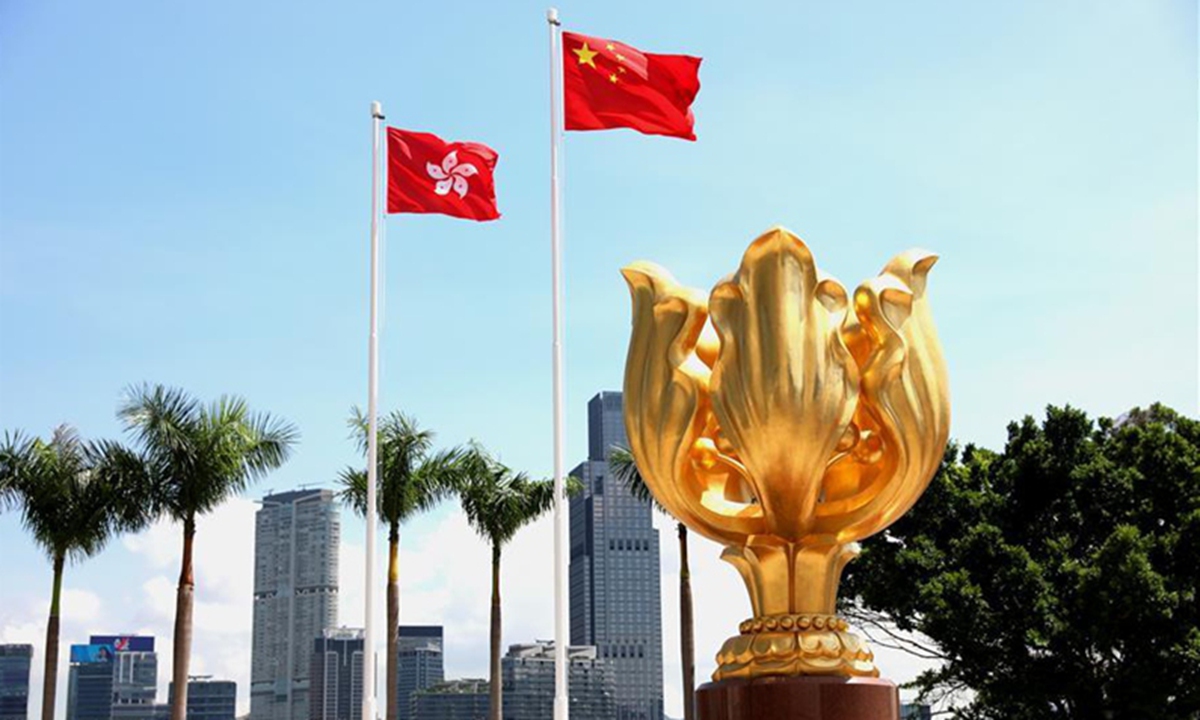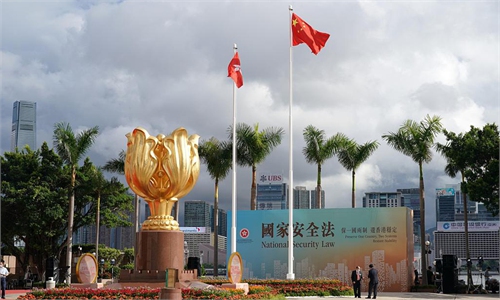Hong Kong court rejects local government’s bid to ban ‘Glory to Hong Kong’; department of justice expected to continue to appeal

Hong Kong File photo
Hong Kong's High Court on Friday rejected a local government submission to ban "Glory to Hong Kong" - a song linked to the anti-government riots in 2019. Some legal experts believed that the department of justice will continue to appeal.
The HKSAR government Chief Executive John Lee called for the department of justice to study the judgement and follow up accordingly. Lee said that it is the responsibility of the HKSAR to effectively prevent, stop, and punish activities that endanger national security.
The department of justice (DOJ) earlier applied for a court injunction to ban unlawful acts related to the song such as broadcasting it with seditious intent.
Considering the impact of an injunction on innocent third parties and the fact that the department of justice's application for the injunction would fall under punishable criminal behavior within a robust criminal justice system, the court, after careful consideration, does not believe that the injunction would serve a real purpose, according to a statement issued by the court on Friday.
The song has been widely circulated since 2019 and its lyrics contain a slogan which has been ruled by the court as constituting secession, according to a statement published on the website of the Hong Kong Special Administrative Region (HKSAR) government earlier.
The judge stated on Friday that the court is not convinced that the injunction would truly be effective, and legal procedures for contempt of court due to violation of the injunction would involve proving relevant criminal offenses. Thus, enforcement would be impractical according to local media reports. The court believes that enforcing the injunction could conflict with relevant criminal laws. For example, crimes violating the National Security Law (NSL) for Hong Kong should be prosecuted in a criminal court.
The judge also expressed that the right to freedom of speech should be considered when applying for an injunction, especially as the issuing of an injunction might produce a "chilling effect." That is, people with pure motives might fear the consequences of violating the injunction and choose not to participate in legitimate activities involving the song.
However, since the behavior listed in the injunction is already a punishable criminal act, and the enforcement of the injunction conflicts with criminal law, otherwise, the court would rule that even if the injunction creates a chilling effect, due to the fundamental importance of national security, the injunction should still be issued, some media reports said, citing the judge.
Chief Executive Lee emphasized that safeguarding national security is the HKSAR's duty and obligation. The national anthem involves the dignity and sovereignty of the country, and should not be insulted or misrepresented. He pointed out that the song in question has been widely circulated since 2019, and is often used to incite others to engage in secessionist activities. It has also been wrongly described as the National Anthem of Hong Kong, which he believes is an insult to the national anthem and damaging to the country and the HKSAR.
Lee stressed that the HKSAR government's focus is solely on individuals who engage in activities and crimes that jeopardize national security, protecting the other 7 million citizens. Lee believes that related threats could arise suddenly, necessitating the implementation of effective measures to prevent, stop, and punish them.
The judgement delivered the wrong signal to the community, which is unexpected and surprising, Chu Kar-kin, a veteran current affairs commentator based in HKSAR and member of the Chinese Association of Hong Kong and Macao Studies, told the Global Times on Friday.
"Apparently, the decision is not based on law or public interest, nor has national security been taken into consideration. After perusing the judgment, the DOJ should consider launching an appeal," Chu said.
"Judges handle cases according to the law and evidence, fearlessly and impartially, acting independently without any interference. Any case will inevitably undergo legal battles and judicial maneuvering," Louis Chen, a member of the Election Committee and general secretary of the Hong Kong Legal Exchange Foundation, told the Global Times on Friday. "Of course, we believe that the DOJ will continue to appeal according to established mechanisms." He also believed that the ruling demonstrates the rule of law and judicial independence are the cornerstones of Hong Kong's prosperity and stability.
In fact, the overall authority of the NSL for Hong Kong, and the normativity of its specific provisions and procedures, have gradually been understood and applied by the Hong Kong courts in a more mature and legislative-intended manner. We must trust that the Hong Kong judiciary can play a correct, appropriate, and key role in the formation of the national security legal system, Chen said.
The dignity of the National Anthem "March of the Volunteers" should not be jeopardized, Chu emphasized. "National security and rule of law should not be forgone with a controversial decision by a sole person unfamiliarized with the current situation," he noted.
In fact, judges made mistakes in the past and that' s the reason appeal mechanism has been employed to overrule judgement based on wrong facts or incorrect law quoted, the expert said.


